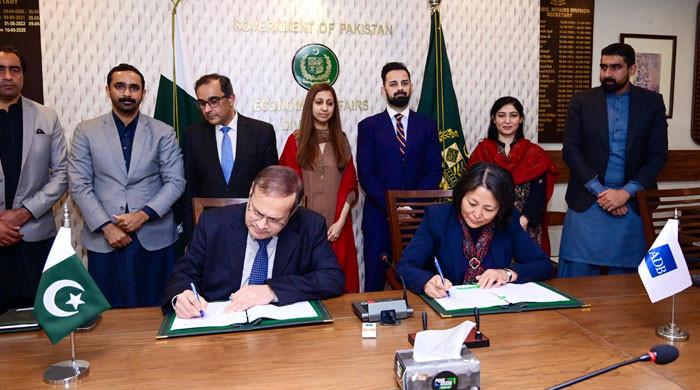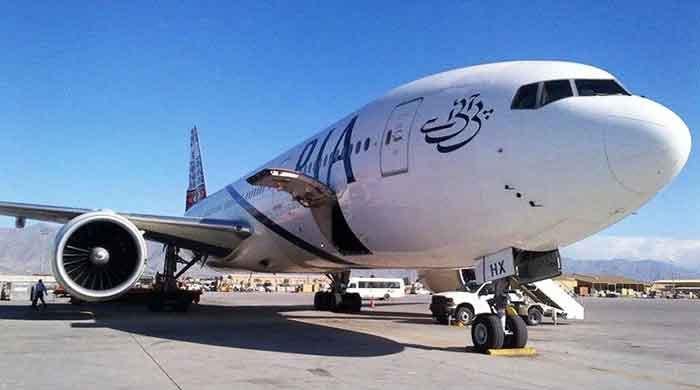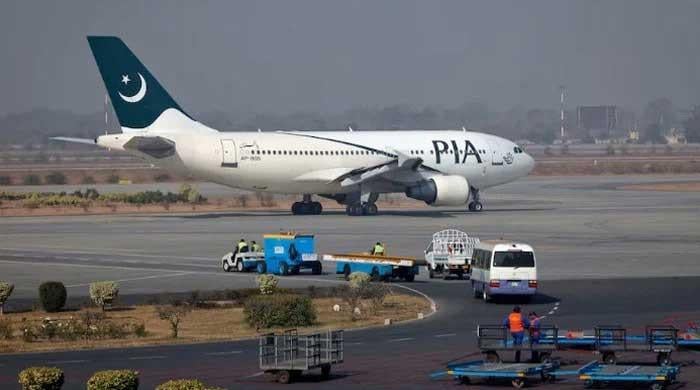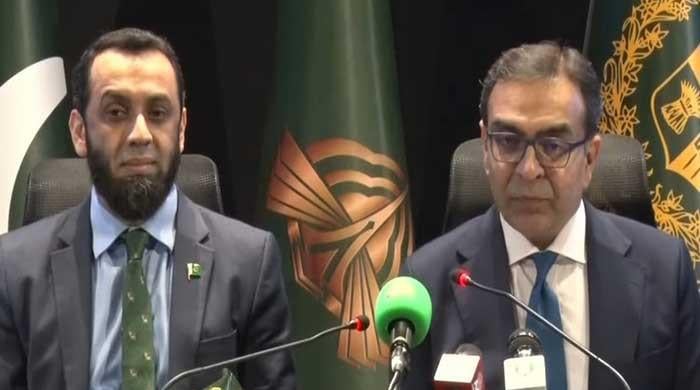Pakistan seeks developing states' enhanced representation in int'l financial institutions
Defence Minister Asif underscores need to adopt equitable tax regime globally, demands WTO's reformation
September 24, 2024
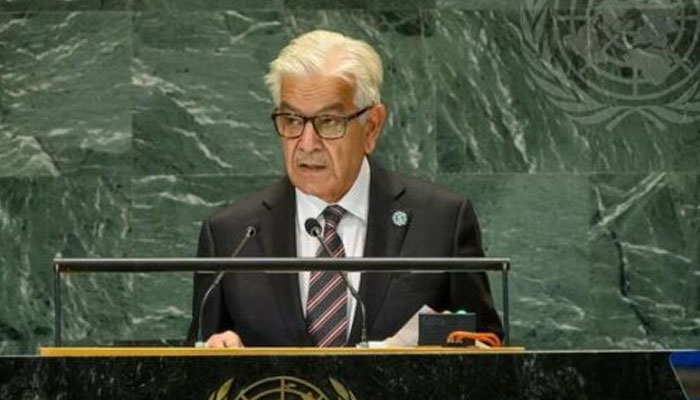
- Defence Minister Asif calls for enlargement of UNSC.
- Says non-permanent members should be added to it.
- He highlights unresolved Kashmir, Palestine issues.
Pakistan has called for ensuring global economic equity by improving the representation of developing countries in international financial institutions.
Speaking at the Summit of the Future on its second and concluding day, Defence Minister Khawaja Asif underscored the need to review the sovereign debt architecture to make it more equitable and adopt an equitable international tax regime along with reforming the WTO (World Trade Organisation) to serve as a vehicle for export expansion and development, through preferential treatment for developing countries and avoidance of new environmental protectionism.
"The UN, by virtue of its universal membership and mandate, remains an indispensable platform to propel and monitor implementation of these commitments," said the defence minister.
Highlighting the need for bridging the North-South divide and preventing an East-West fragmentation of the digital space, Asif remarked: "We must ensure equitable data governance. And, we must capture and control the power of Artificial Intelligence."
Addressing the various challenges faced by the world today, the minister termed the UN's Pact for the Future — aimed at transforming the multilateral system — an expression of the international community’s collective determination to respond to global challenges and called for upholding the commitments made in the game-changing document.
"The Pact will be transformative only if we translate the commitments undertaken into concrete action," he remarked.
His statement comes as Sunday's comprehensive pact, which world leaders approved by consensus, aims to strengthen global governance and tackle key challenges facing humanity including sustainable development, international peace, and technological innovation, youth and future generations and transforming global governance.
It also proposes detailed action plans to address these challenges.
"For the over 100 developing countries, the Pact offers an opportunity to revitalise development and to reform the unequal international financial and economic system,” he said during his speech at the UN General Assembly hall.
He further, pointed out the need for bridging the $4 trillion Sustainable Development Goals (SDG) financing gap by fulfilling the ODA (Official Development Assistance) commitments; implementing the UN Secretary-General’s SDG Stimulus proposal; re-channelling 50% of the unused 2021 allocation of Special Drawing Rights (SDRs); delivering a more ambitious International Development Association (IDA) by ensuring a robust $100 billion replenishment; enlarging lending by the multilateral development banks; and lowering borrowing costs for developing countries.
Touching upon the longstanding Kashmir and Palestine issues, Asif warned that "no sustainable development can take place till tragedies like Gaza are perpetuated by the developed world."
"The panoply of measures envisaged in the UN Charter must be activated to resolve new and old disputes, including the Jammu and Kashmir dispute," he added.
Referring to the UN Security Council's (UNSC) frequent failure, the defence minister said that adding more permanent members — as demanded by India and its allies — will multiply the prospects of its paralysis.
"Instead,” he added: The council [UNSC] should be adequately enlarged and made more representative by adding more non-permanent, elected members to the council."




